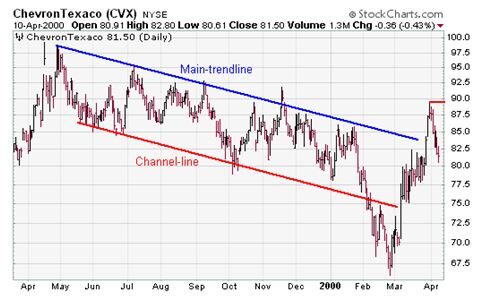What is Resistance?
In technical trading analysis, resistance is an upper limit in a price channel in which a security’s price tends to stay.
How Does Resistance Work?
Price channels can slope up (indicating bullish sentiment) or down (indicating bearish sentiment); they don’t have to simply go “sideways.” The important geometric characteristic is that the resistance lines and support lines (the opposite of the resistance) are parallel, as shown in this price channel for ChevronTexaco (CVX). The channel lines themselves are often based on multiday moving averages or logarithmic scales that reflect price movements in percentage terms. However, technical trading is as much an art as it is a science, and so one technical trader’s price channel might be different from another’s.
When a stock’s price touches the resistance, this may signal a trend change, which is why resistance levels are very important to technical traders.

Why Does Resistance Matter?
Price channels help tip traders off about trend changes in a stock or “unusual” activity when the price goes above or below the price channel lines (we call this a breakout). For example, a technical trader might sell when a stock hits resistance on a downward-sloping channel.



